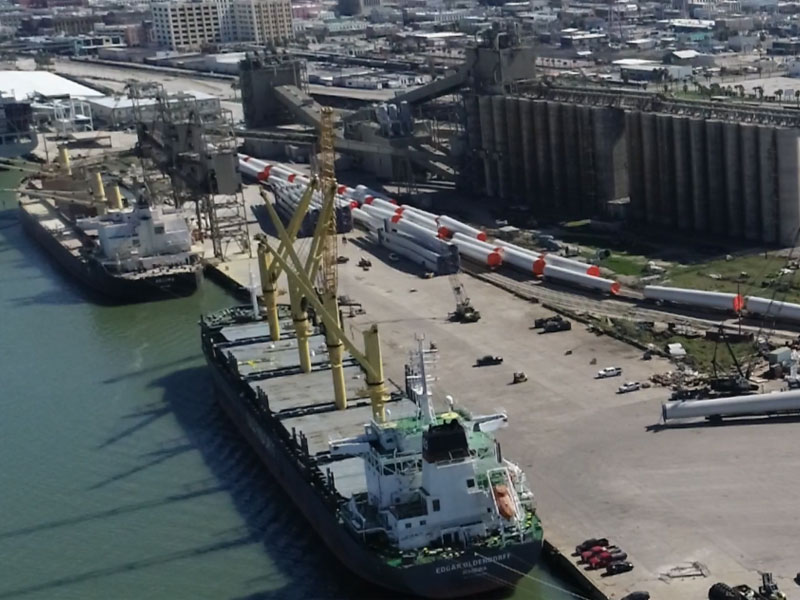Grain, wind energy components, fresh fruit all up despite pandemic
Galveston Wharves cargo business totaled 4.3 million tons in 2020, exceeding 2019 totals by 300,000 tons, with general cargo, grain and fresh fruit leading the gains. Cargo activity generated more than 400,000 work hours for the ILA and had direct and indirect economic benefits for other related businesses.

Grain and bean exports grew 128 percent to 1.5 million tons, accounting for almost a third of total tonnage in 2020. The port benefited from increased trade with global partners, a trend expected to continue this year.
General cargo, which includes wind components, livestock, specialized containers and lightering, was up 21 percent with 260,516 tons compared to 215,549 in 2019. As a hub for Gulf Coast wind energy imports, the port saw 2,247 wind components, slightly up over 2019.
“Our rail and roadway infrastructure are designed to efficiently move these large components. An additional 17 acres of laydown area will be available for wind components early this year to accommodate even more cargo,” Rees said.
The port also got approval from the U.S. Food and Drug Administration to export U.S. cattle, including heifers and dairy cows, overseas for the first time in almost a decade. In December, the port moved its first load of cattle and expects more exports in 2021.
Fresh fruit imports picked up slightly in 2020 and are expected to continue to grow this year as importers move from breakbulk to containers at the port. In 2020, 607,000 tons of bananas and other fruit moved through Galveston.
In another positive move, maintenance dredging will return sections of the federally owned areas of the ship channel to 46 feet, allowing larger grain ships to access the port in a few months.







